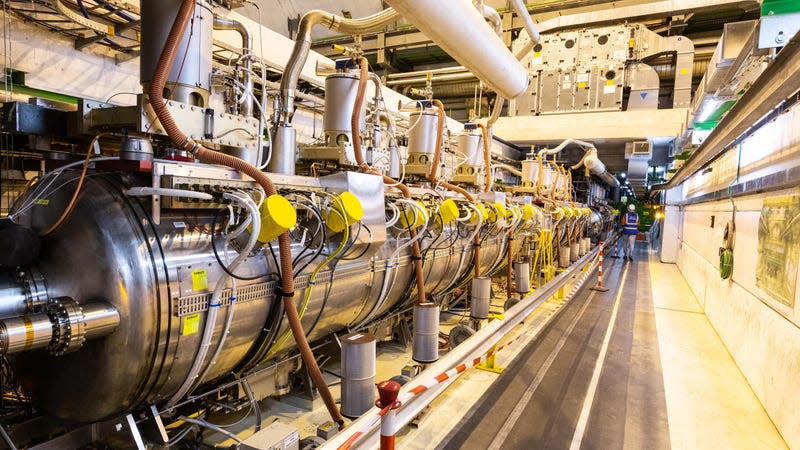Large Hadron Collider Tech Might Help Self-Driving Cars "See" the Road

A three-year study between Volvo’s autonomous software arm and the Large Hadron Collider in Europe shows promise in helping self-driving cars understand the road and make split decisions.
The Large Hadron Collider is undeniably epic. It’s the world’s largest and most powerful particle accelerator capable of smashing particles together at nearly the speed of light using superconducting magnets. After the collision, physicists take a look at the extremely short-lived wreckage to discover the building blocks of our universe. The LHC is run by CERN, or the European Council for Nuclear Research (Conseil Européen pour la Recherche Nucléaire) and has been accelerating particles since 2008.
Read more
With a lot of experience in studying crashes, CERN is uniquely positioned to help car companies develop machine learning programs capable of making split-second analysis of complex situations. The subatomic particles studied by researchers at CERN are infinitesimally small and exist for only a microsecond. To understand what these particles are, CERN developed algorithms that use Deep Learning to identify these fragments of matter.
Researchers spent the past three years working with Volvo’s autonomous driving software development subsidiary, Zenseact, focusing on computer vision, which includes all the programing that allows computers to “see” and react to the real world. The purpose of the research was to use the LHC’s Deep Learning algorithms to improve autonomous cars’ decision making.
“The results of our research show that there’s still room for improvement when it comes to running the Deep Learning algorithms faster and more energy-efficient on resource-limited on-device hardware,” said Christoffer Petersson, research lead at Zenseact, in a press release. “Simply put, machine learning techniques might help drive faster decision-making in autonomous cars.”

 Yahoo Autos
Yahoo Autos 